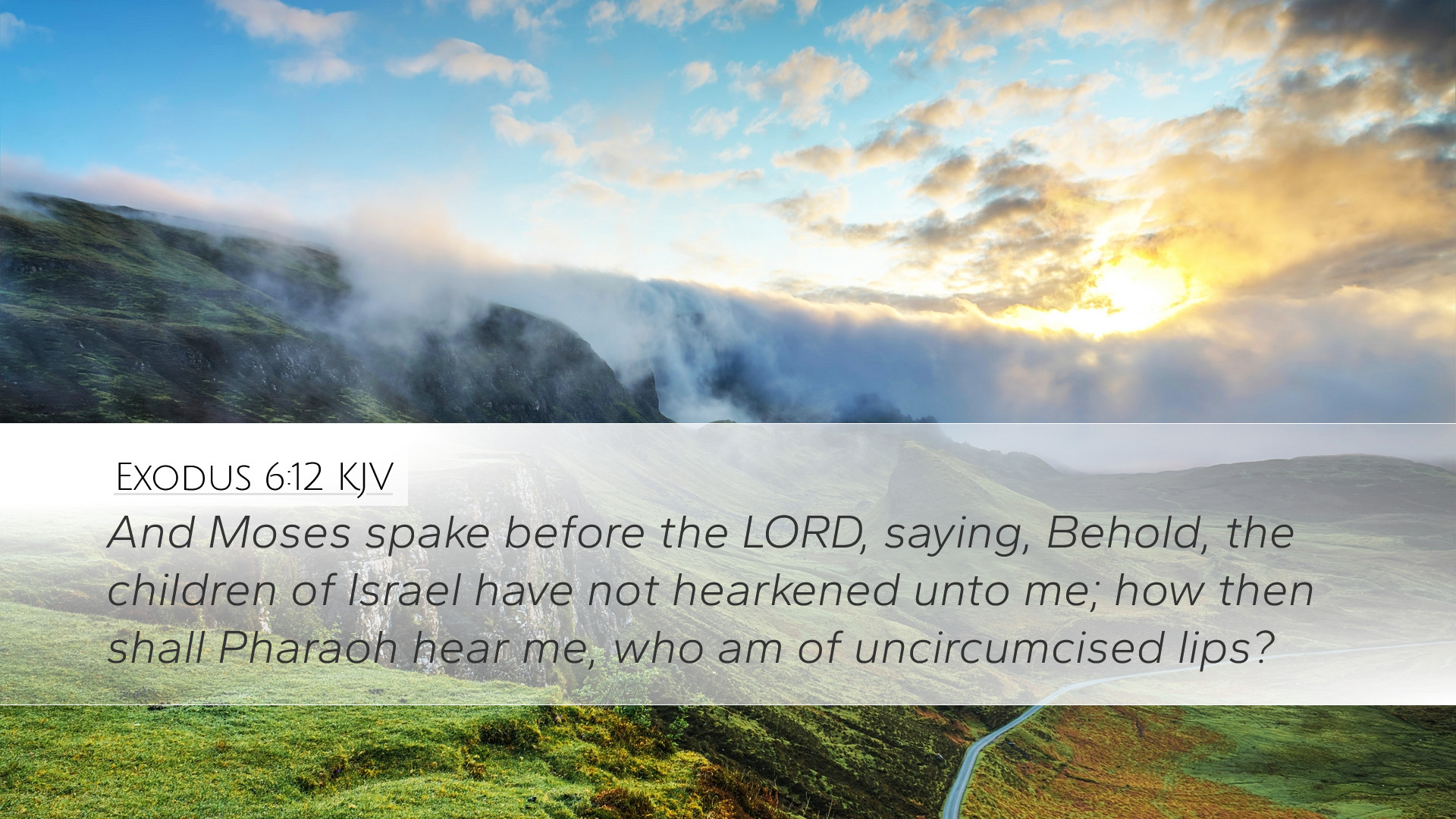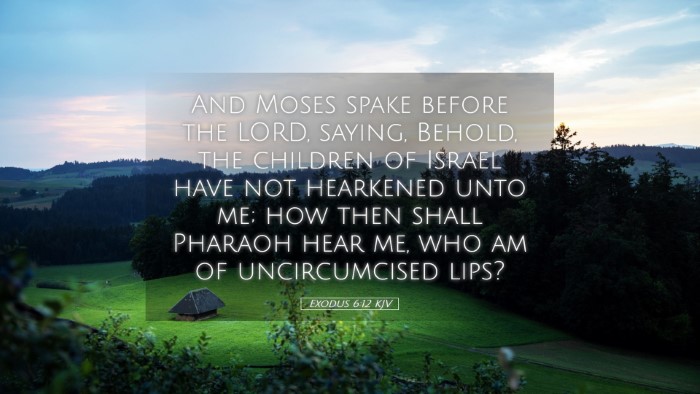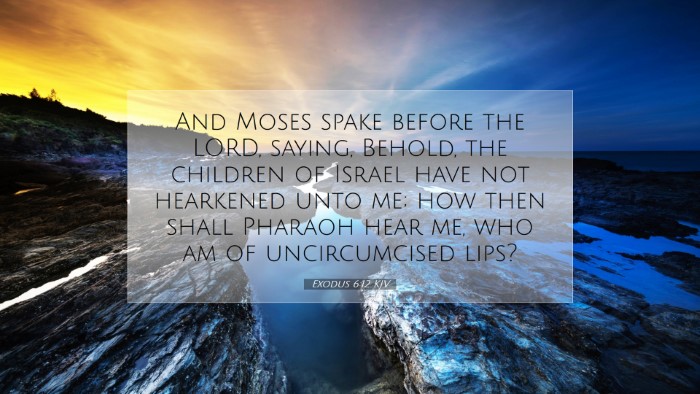Commentary on Exodus 6:12
Verse Context: Exodus 6:12 states, "But Moses said before the Lord, Behold, the children of Israel have not hearkened unto me; how then shall Pharaoh hear me, who am of uncircumcised lips?" This verse occurs in the narrative of Moses' call to lead the Israelites out of Egypt, emphasizing his sense of inadequacy and doubt in light of God’s charge.
General Overview
This verse illustrates the challenges and fears faced by Moses as he undertakes a monumental task. His hesitance reflects a common theme in the Scriptures where chosen leaders express their insufficiencies before God. This moment serves as a critical juncture in the Exodus narrative, revealing both human vulnerability and divine empowerment.
Theological Implications
- The Nature of Prophetic Call: Moses' reluctance highlights the weight of prophetic authority and the fears that accompany divine mandates. God often calls individuals who feel inadequate to fulfill His purposes, demonstrating that effectiveness in ministry stems from reliance on divine strength, not human skill.
- The Significance of Obedience: Moses’ lamentation reveals the importance of hearing and responding to God's voice. Even amidst doubt, God’s commands remain immutable, calling His followers to act despite their perceived shortcomings.
Insights from Commentators
Matthew Henry's Commentary: Henry asserts that Moses' response reflects a deep humility before God. He emphasizes that Moses questioned not only Pharaoh’s receptivity but also the general situation of the Israelites who had not responded favorably to his initial efforts. Henry interprets this as a moment of human frailty that God uses to showcase His faithfulness.
Albert Barnes' Commentary: Barnes elaborates on Moses’ statement regarding “uncircumcised lips,” suggesting it symbolizes his unclean speech or his lack of eloquence. He discusses the broader implications of being chosen by God while feeling entirely unequipped; this encapsulates the paradox of divine selection—God equips the called, even when they feel most unqualified.
Adam Clarke's Commentary: Clarke emphasizes the idea that the disbelief of the Israelites hindered Moses' confidence. He notes that their failure to listen adds another layer of difficulty to Moses’ task, as it sets a precedent of skepticism that he must confront with Pharaoh. Clarke suggests that God remains steadfast in His promises despite the prevailing doubt.
Practical Applications
- Tackling Insecurity in Ministry: For pastors and theologians, this verse serves as an encouragement that feelings of inadequacy are common among those in leadership. The key is to lean into God’s strength rather than fixate on personal limitations.
- Empowerment through Obedience: Students of the Bible can draw lessons about faith through obedience, noting that even the greatest leaders faced opposition and discouragement. Faithfulness to God’s call can lead to profound impacts, regardless of outward circumstances.
Conclusion
The message in Exodus 6:12 transcends time, speaking to all who seek to follow God's calling. It resonates with the call to faithfulness amid doubts and fears. For every leader, pastor, and believer, this verse serves as a reminder of God’s strength made perfect in human weakness, urging us to trust in His divine purpose.


